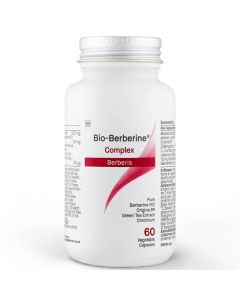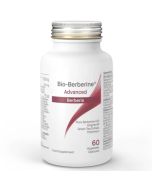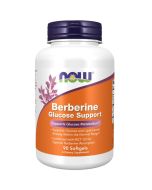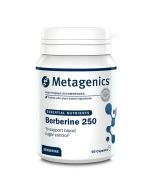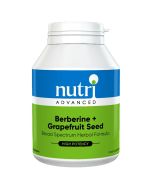
Berberine: Everything You Need To Know | Complete Guide
Berberine is most commonly valued for its potential to support blood sugar balance, healthy cholesterol levels, and digestive health. Modern studies suggest it may also improve gut health, support heart health, and help maintain overall metabolic function, making it a versatile and natural health supplement. This is your complete guide on everything you need to know about Berberine, helping you answer your questions and differentiate between berberine myths and facts based on scientific research.
Berberine supplements available to buy: click here.
What It Is | How It Works | Health Benefits | PCOS, Diabetes, Cholesterol
Supplements & Recommendations | Dosage | Side Effects & Complications
What is Berberine?

Berberine is a natural compound classified as an isoquinoline alkaloid (a type of plant chemical with potential health benefits) found in various plants, including barberry (Berberis vulgaris), Oregon grape (Berberis aquifolium), goldenseal (Hydrastis canadensis), and Chinese goldthread (Coptis chinensis). Extracted from the roots, bark, or stems of these plants, it is a bright yellow substance long used in traditional medicine systems like Ayurveda and Chinese medicine.
How Does Berberine Work?
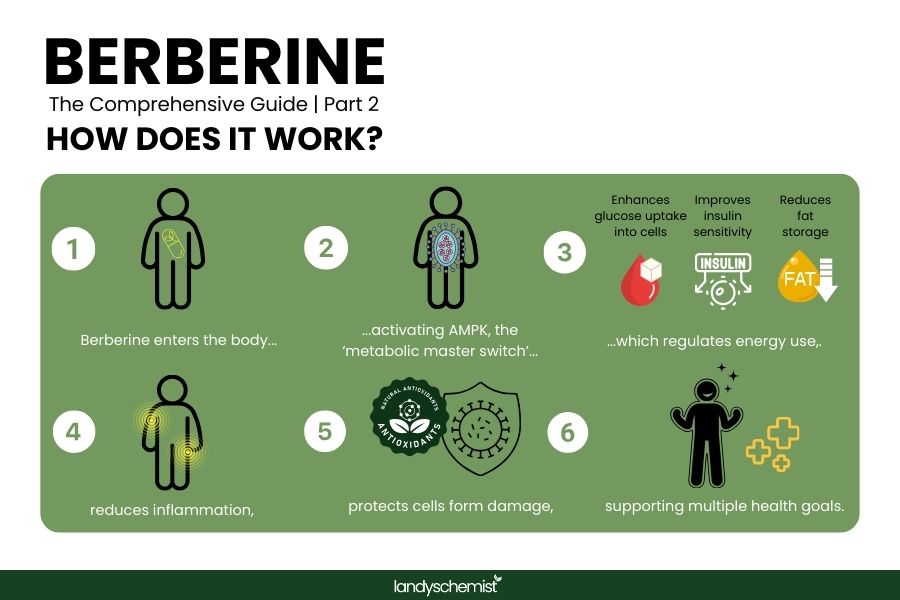
Berberine works at a cellular level to support the body’s natural balance and health. Its primary action is activating AMPK (adenosine monophosphate-activated protein kinase), often called the body’s "metabolic master switch." This enzyme helps regulate metabolic processes through improved energy use, how the body processes glucose, enhancing insulin sensitivity, and supporting healthy fat metabolism.
Beyond its metabolic benefits, berberine reduces inflammation by lowering pro-inflammatory cytokines, molecules that contribute to chronic inflammation. This may help to support heart health, soothe the digestive tract, and promote overall cellular health. Its antioxidant properties further protect cells from damage, reducing oxidative stress and supporting overall well-being
Health Benefits of Berberine
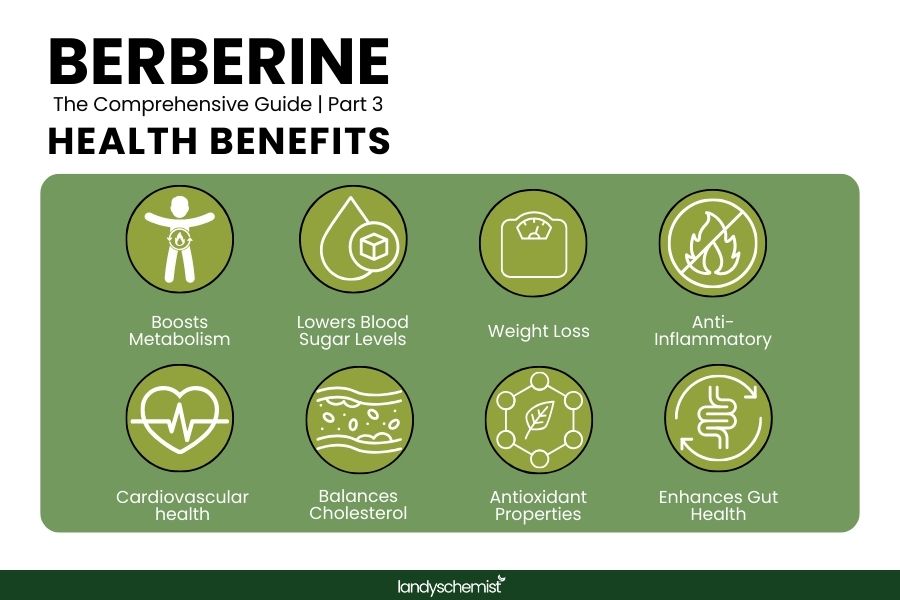
Blood Sugar Management
One of the most well-documented benefits of berberine is its ability to support blood sugar regulation. By activating AMPK, berberine improves glucose uptake in cells and reduces glucose production in the liver, resulting in lower fasting blood sugar levels. Research has shown that berberine’s effects on blood sugar are comparable to the pharmaceutical treatment metformin, making it a natural option for individuals looking to manage their glucose levels.
Insulin Sensitivity
Berberine enhances insulin sensitivity, making cells more efficient at responding to insulin and absorbing glucose. This action reduces the strain on the pancreas to produce excess insulin, which can contribute to insulin resistance over time.
Read more: Biocare Gluco Complex Review for Metabolic Health
Weight Management
Berberine has gained attention for its potential role in weight management, often compared to GLP-1 receptor activators like Ozempic. To understand why Berberine is compared to GLP-1 activators read: Best Natural GLP-1 Activating Supplements. While not a GLP-1 agonist itself, berberine enhances metabolic function which supports fat metabolism and reduces fat storage. Studies suggest it may help regulate hormones associated with appetite and energy expenditure, indirectly aiding weight control. By improving glucose processing and insulin sensitivity, berberine may help with maintaining a healthier body weight, particularly in those with metabolic challenges.
Cardiovascular Health
Berberine may support cardiovascular health through multiple mechanisms. Studies have shown that berberine can help to regulate cholesterol levels by reducing LDL (bad cholesterol) and increasing HDL (good cholesterol). Read more: Understanding Cholesterol in Simple Terms.
Additionally, it has been found to have an effect on lowering triglycerides and promoting healthy blood pressure levels. Berberine’s anti-inflammatory and antioxidant effects may also have cardioprotective properties to reduce the risk of cardiovascular diseases but reducing the effects of things like oxidative damage.
Gut Health
Berberine positively impacts gut health by promoting a balanced microbiome. It has antimicrobial properties that can help manage harmful bacteria while supporting the growth of beneficial strains. This balance improves digestion, reduces symptoms of bloating or discomfort, and enhances overall gut function. A healthier microbiome also contributes to better metabolic health and immune system regulation.
Cognitive Health
Emerging research suggests berberine may benefit cognitive function, including age-related cognitive decline like Alzheimer's disease. Its anti-inflammatory and antioxidant properties may help protect brain cells from damage caused by oxidative stress and inflammation, both of which are linked to neurodegenerative diseases. Additionally, berberine’s role in supporting cardiovascular health indirectly benefits brain health as research shows that our brain use up 20% of our oxygen.
Inflammation
As berberine has strong anti-inflammatory properties, it could be a valuable tool for managing chronic inflammation. It works by reducing the production of pro-inflammatory cytokines, signalling molecules involved in the body’s inflammatory response. This reduction can alleviate symptoms of inflammation-related conditions, such as joint discomfort, heart disease, and certain digestive issues.
Liver Health
Research supports berberine’s ability to promote liver health, particularly by improving lipid metabolism and reducing fat accumulation in the liver. It may help prevent or manage non-alcoholic fatty liver disease (NAFLD) by lowering triglyceride levels and reducing oxidative stress within liver cells. Additionally, its blood sugar-regulating effects lessen the liver’s burden in managing glucose levels.
Berberine for Treating Health Conditions
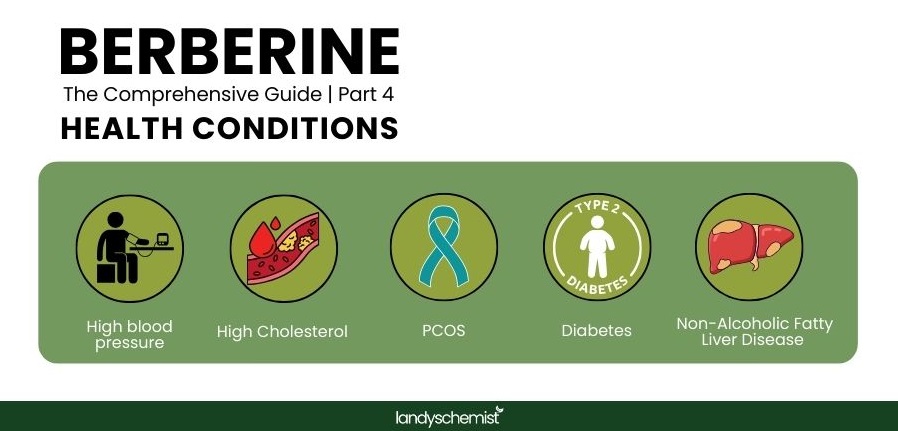
Berberine for PCOS
Polycystic Ovary Syndrome (PCOS) is closely linked to insulin resistance, high androgen levels, and metabolic disturbances. Berberine has shown potential in managing pCOS symptoms by improving insulin sensitivity and regulating blood sugar levels, which are often impaired in individuals with PCOS.
By activating AMPK, berberine can also support weight management, a critical aspect of PCOS management. Some studies suggest that berberine may help regulate hormone levels, reducing androgen excess and improving ovulation, making it a valuable natural option for managing PCOS symptoms. Read more: Berberine vs. Insoitol for managing PCOS
Berberine for Diabetes
Berberine is particularly effective for managing type 2 diabetes, where insulin resistance and high blood sugar levels are key issues. It helps lower fasting blood sugar by enhancing insulin sensitivity and reducing glucose production in the liver. By activating AMPK, berberine may help to improve glucose uptake in cells, which mimics some of the effects of medications like metformin. However, berberine is not typically used for type 1 diabetes, as it does not replace the need for insulin.
Berberine for High Cholesterol
Berberine helps improve cholesterol levels by lowering LDL (bad cholesterol) and triglycerides while increasing HDL (good cholesterol). It does this by enhancing LDL receptors in the liver, making it easier for the body to remove excess LDL from the bloodstream. These natural effects support a healthier lipid profile at risk of cardiovascular disease. Read more about managing cholesterol with our comprehensive guide: Everything you need to know about Cholesterol.
Berberine for Non-Alcoholic Fatty Liver Disease (NAFLD)
Berberine shows potential for managing NAFLD by improving lipid metabolism and reducing fat buildup in the liver. By activating AMPK, it supports fat-burning and lowers triglyceride storage in liver cells. Its anti-inflammatory and antioxidant effects may also protect liver tissue from damage caused by oxidative stress and inflammation.
Berberine for Blood Pressure
Berberine may help lower blood pressure in individuals with hypertension, though its effects are typically indirect. By improving insulin sensitivity, reducing inflammation, and supporting vascular health, berberine may contribute to healthier blood pressure levels. However, berberine is best viewed as a complementary approach for blood pressure management rather than a primary treatment.
Berberine supplements: recommendations
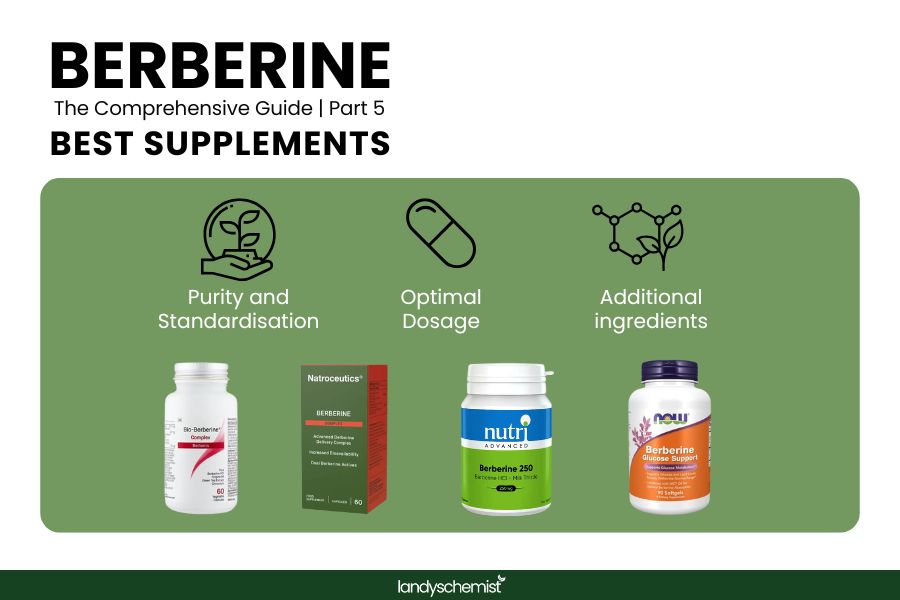
Explore the Best Options:
For trusted recommendations and detailed insights, visit our Best Berberine Supplements blog. This guide features top-rated brands, formulation types, and expert tips to help you make an informed choice.
Read our comprehensive review on Coyne Bio-Berberine Formulation
What to Look For in a Supplement:
- Purity and Standardisation: Ensure the supplement is derived from plants like barberry or goldenseal and is standardised for consistent potency.
- Optimal Dosage: Look for products delivering 500–1500mg per serving, a range supported by research for benefits like blood sugar balance and inflammation management.
- Additional Ingredients: Some supplements include milk thistle (for liver support) or alpha-lipoic acid (for metabolic enhancement), offering tailored benefits for specific needs.
Berberine Dosage and administration
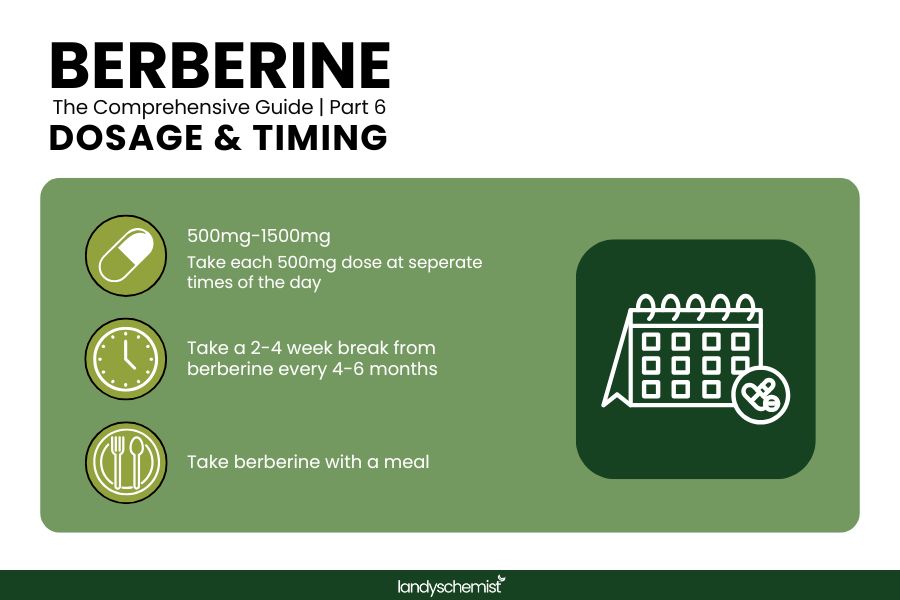
Understanding the right dosage of berberine is essential to maximise its health benefits while minimising risks. Here’s a detailed guide:
Typical Dosage Range:
Clinical studies suggest a dosage of 500mg to 1,500mg per day, divided into two or three doses to ensure consistent absorption.
- Duration of Use: It is generally recommended to take a 2–4 week break from berberine after every 4-6 months of continuous use. This allows the body to reset its AMPK pathways, prevents potential tolerance, and gives the liver a chance to recover from metabolising the compound.
- Best Practices for Absorption: Taking berberine with meals enhances its absorption and bioavailability, ensuring the body can utilise it effectively. It also helps reduce potential digestive discomfort, such as nausea or cramping, by slowing its release and improving tolerance.
Side effects and complications
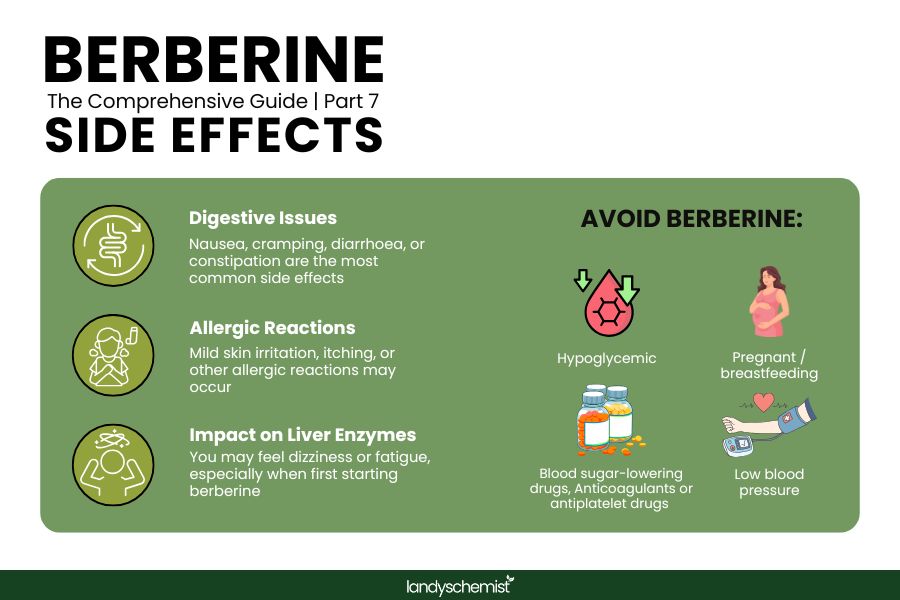
While berberine is generally safe for most people, it can cause some side effects or complications in certain cases. Here’s a detailed list of side effects and complications to consider before taking Berberine supplements.
- Digestive Issues: Nausea, cramping, diarrhoea, or constipation are the most common side effects, particularly at higher doses.Gradually increasing the dose and taking it with meals can help reduce these effects.
- Allergic Reactions: Rare cases of mild skin irritation, itching, or other allergic reactions may occur.
- Potential impact on Liver Enzymes: Prolonged use or high doses may affect liver enzyme levels, particularly in individuals with pre-existing liver conditioner. However, there is currently no research to support liver-damaging effects caused by berberine.
- Other Potential Effects: Some users report dizziness or fatigue, especially when first starting berberine.
Avoid Berberine supplementation if:
- Have Hypoglycaemia or Take Blood Sugar-Lowering Medications: Berberine can significantly lower blood sugar, increasing the risk of hypoglycaemia, especially when combined with diabetes medications.
- Are Pregnant or Breastfeeding: Berberine is not recommended during pregnancy or while breastfeeding due to limited safety data.
- Have Low Blood Pressure: Berberine may further lower blood pressure, posing a risk for those with hypotension.
- Avoid if you take certain medications: Blood sugar-lowering drugs (risk of hypoglycaemia) or Anticoagulants or antiplatelet drugs (increased bleeding risk).
To ensure safety, consult a healthcare provider before starting berberine, particularly if you have underlying health conditions or take medications.
FAQ’s
Is Berberine Bad for Kidneys?
Berberine is generally considered safe for kidney health when taken at appropriate doses. There is no direct evidence suggesting that berberine causes direct harm to the kidneys. However, individuals with pre-existing kidney conditions or those taking medications metabolised by the liver or kidneys should consult a healthcare provider before using berberine to avoid potential interactions or complications. Read more: Is Berberine Bad For Kidneys?
What is Berberine Used For?
Berberine is used to support blood sugar regulation, improve insulin sensitivity, and manage cholesterol levels. It is also valued for its potential to aid weight management, gut health, and cardiovascular health. Additionally, it is often used to help reduce inflammation and oxidative stress.
Can I Take Berberine Before Bed?
Yes, you can take berberine before bed, especially if managing fasting blood sugar levels is your goal. Berberine’s effects on glucose regulation and insulin sensitivity can be beneficial overnight. However, it’s often recommended to split doses throughout the day for consistent absorption.
How Long Does It Take for Berberine to Lower Blood Sugar?
Berberine may start to show noticeable effects on blood sugar levels within a few days to two weeks of consistent use. Improvements in fasting blood sugar and insulin sensitivity are often observed within this timeframe. For optimal and sustained results, regular use for at least 3 months is recommended.
Can You Take Berberine with Metformin?
Berberine and metformin can be taken together, but caution is needed as both lower blood sugar and may increase the risk of hypoglycaemia. Regular monitoring of blood sugar levels is essential.
Can Berberine Cause Weight Gain?
No, berberine is unlikely to cause weight gain. By activating AMPK, it improves fat metabolism, reduces fat storage, and regulates hormones linked to appetite and energy balance. Studies suggest berberine may help maintain or reduce weight, especially in individuals with metabolic challenges. Always combine berberine with a balanced diet and healthy lifestyle for the best results.
Can You Take Berberine and Inositol Together?
Yes, berberine and inositol can be taken together, as they may have complementary benefits, particularly for conditions like PCOS. Berberine improves insulin sensitivity and regulates blood sugar, while inositol supports hormonal balance and ovarian health. This combination may enhance metabolic and reproductive health outcomes.
References
- https://pmc.ncbi.nlm.nih.gov/articles/PMC4504840/
- https://pmc.ncbi.nlm.nih.gov/articles/PMC8874997/
- https://pmc.ncbi.nlm.nih.gov/articles/PMC7330667/
- https://www.sciencedirect.com/science/article/abs/pii/B9780128177808000141
- https://www.frontiersin.org/journals/pharmacology/articles/10.3389/fphar.2022.1015045/full
- https://pmc.ncbi.nlm.nih.gov/articles/PMC2410097/
- https://pmc.ncbi.nlm.nih.gov/articles/PMC7752296/
- https://pmc.ncbi.nlm.nih.gov/articles/PMC3310165/
- https://trialsjournal.biomedcentral.com/articles/10.1186/s13063-021-05028-8
- https://pubmed.ncbi.nlm.nih.gov/36941490/
- https://pmc.ncbi.nlm.nih.gov/articles/PMC8936808/
- https://pmc.ncbi.nlm.nih.gov/articles/PMC10435753/
- https://www.pnas.org/doi/10.1073/pnas.030540597
- https://pmc.ncbi.nlm.nih.gov/articles/PMC10334151/
- https://pmc.ncbi.nlm.nih.gov/articles/PMC10824956/
- https://www.frontiersin.org/journals/pharmacology/articles/10.3389/fphar.2023.1301102/full
- https://pmc.ncbi.nlm.nih.gov/articles/PMC6918828/
- https://www.frontiersin.org/journals/molecular-neuroscience/articles/10.3389/fnmol.2018.00216/full
- https://www.sciencedirect.com/science/article/abs/pii/S0009279719318587
- https://translational-medicine.biomedcentral.com/articles/10.1186/s12967-024-05011-2
- https://pmc.ncbi.nlm.nih.gov/articles/PMC3703418/
- https://www.sciencedirect.com/science/article/pii/S0753332221002535
- https://pubmed.ncbi.nlm.nih.gov/34333328/

